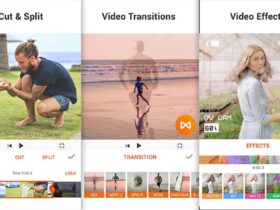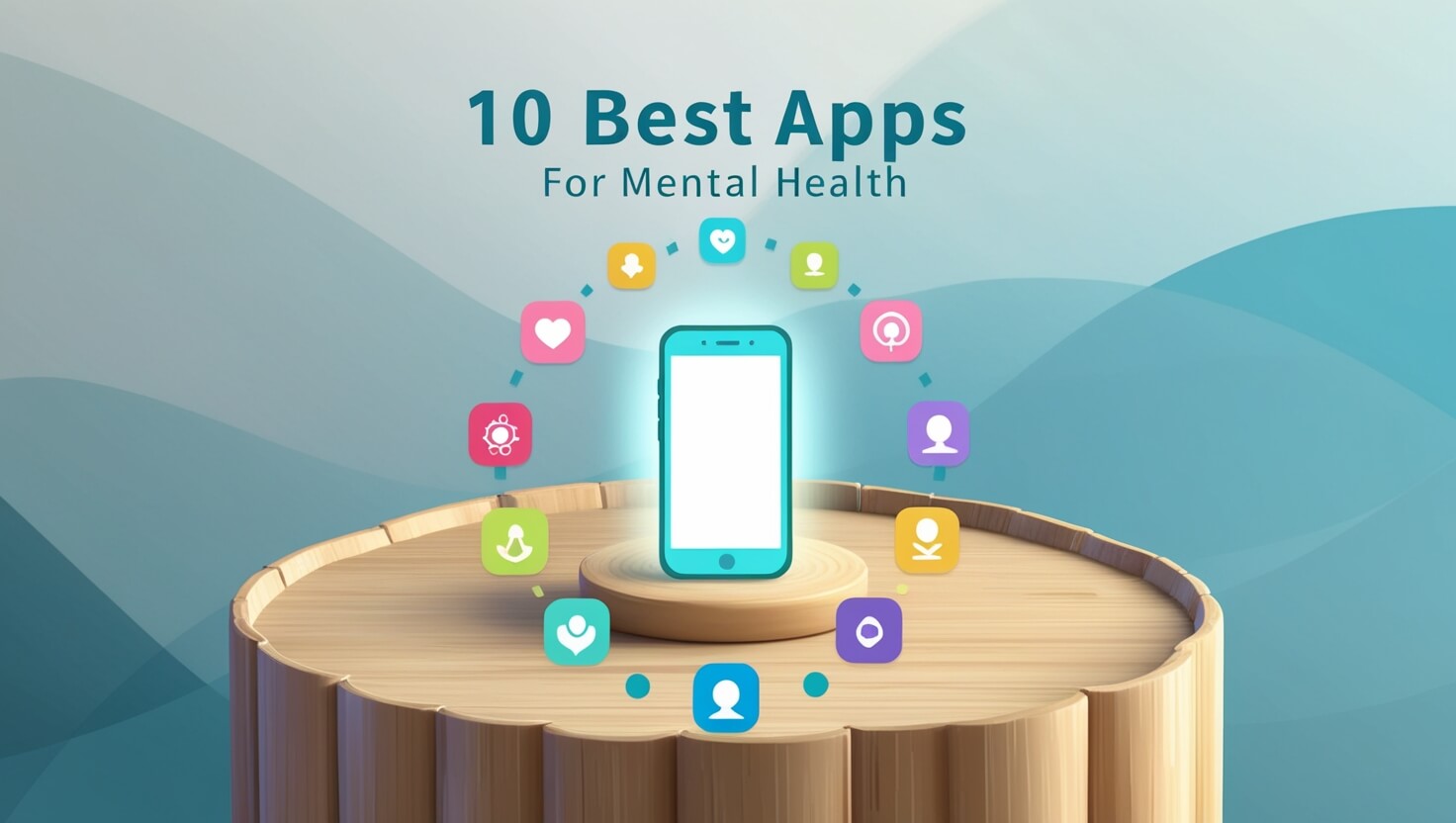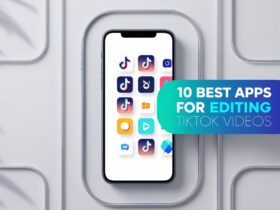In this article, I will talk about the Best Apps For Mental Health manage stress and anxiety and take care of your mental well-being all from the comfort of your smartphone.
These apps uniquely combine features such as access to therapy, guided meditation, mood tracking, and breathing exercises. Whether you need professional help or self-care tools, these applications offer an effortless approach to mental health.
Key Point & Best Apps For Mental Health List
| App | Key Point |
|---|---|
| BetterHelp | Offers online therapy with licensed professionals via text, call, or video. |
| Calm | Focuses on sleep, meditation, and relaxation with guided sessions. |
| Headspace | Provides structured meditation programs for stress and focus. |
| Talkspace | Matches users with licensed therapists for messaging-based therapy. |
| Moodfit | Tracks mood and mental health with customizable tools and exercises. |
| Sanvello | Combines CBT techniques with mood tracking and peer support. |
| Shine | Offers daily self-care support with a focus on BIPOC and inclusive voices. |
| Happify | Uses science-based activities and games to improve emotional wellbeing. |
| MoodMission | Suggests missions (activities) based on how you’re feeling to boost mood. |
| iBreathe | Simple app for guided breathing exercises to reduce anxiety and stress. |
1.BetterHelp
BetterHelp is known to be one of the best apps for mental health since its users are connected to fully licensed therapists through an online platform.
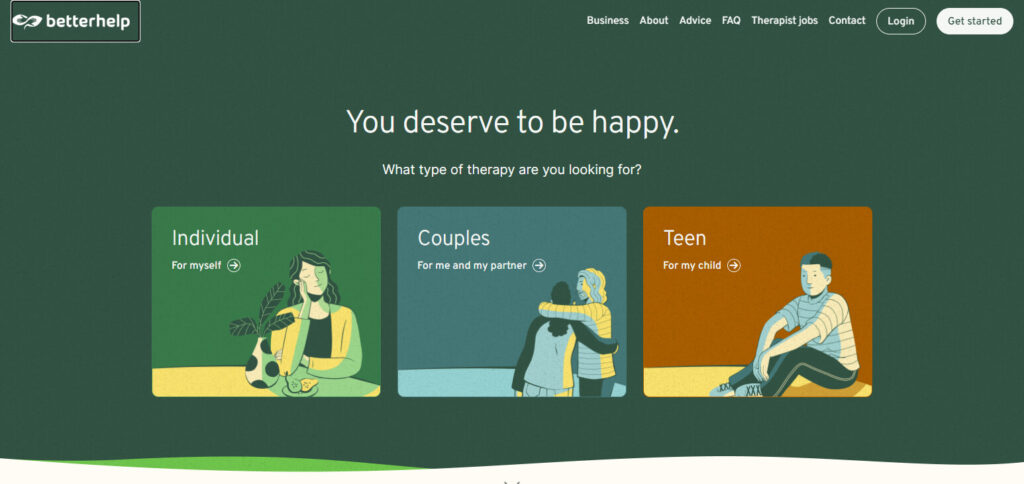
Its unique strength lies in providing therapy that fits around the user’s busy schedules; the user can communicate via text, voice, or video.
This on-demand flexibility removes traditional barriers like commuting and scheduling delays. BetterHelp provides professional mental health support that is more accessible than ever through personalized therapist matching and constant availability.
Pros & Cons BetterHelp
Pros:
Cons:
2.Calm
Calm is one of the top applications for mental health as it provides a tranquil oasis for relaxation, sleep, and mindfulness.
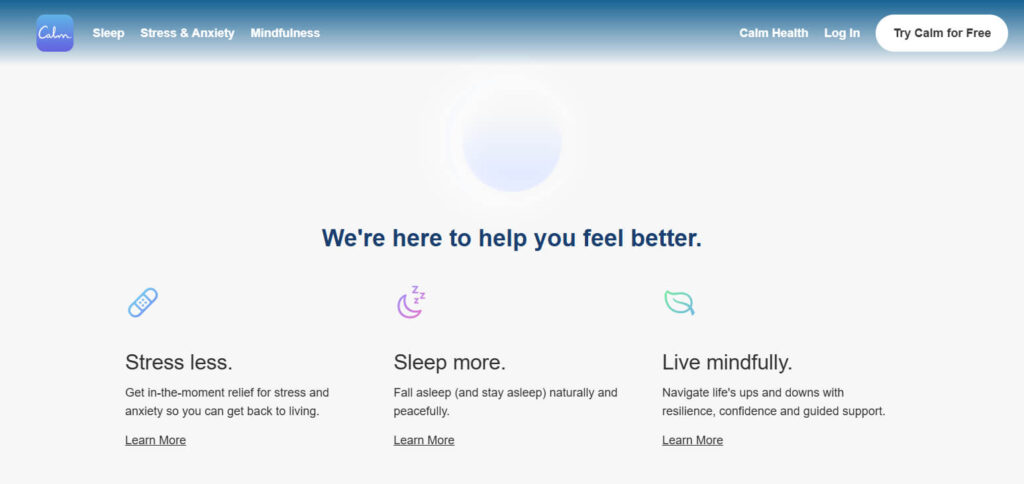
Its distinct strength comes from enabling the users to fall asleep naturally with narrated stories by soother voices. Unlike many other Calm combines visual and audio experiences, showing beautiful images of nature accompanied by soft melody, to help reduce anxiety and encourage relaxation rally.
This approach based on immersion and stress relief makes it the best choice for determining emotional stability.
Pros & Cons Calm
Pros:
Cons:
3.Headspace
Headspace is considered one of the best apps on mental health as it provides meditation programs specifically tailored for real life problems users encounter.
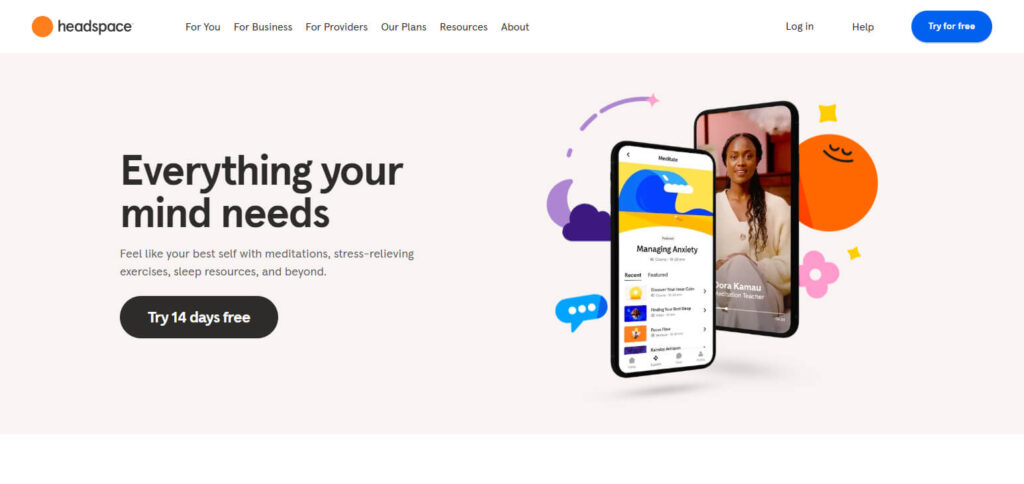
What makes the app unique is transforming mindfulness into a habit users can incorporate into their lifestyles. There are sessions made for anxiety, focus, sleep and work productivity.
While the app simplifies meditation for beginners, there are deeper practices made available for advanced users too. Along with its vivid design, Headspace utilizes scientific research to support its recommendations making mental health care easy and effective for everyone, no matter what stage they are in.
Pros & Cons Headspace
Pros:
Cons:
4.Talkspace
Talkspace is one of the standout applications in mental health care because it enables users to communicate with licensed therapists through secure messaging and video calling.
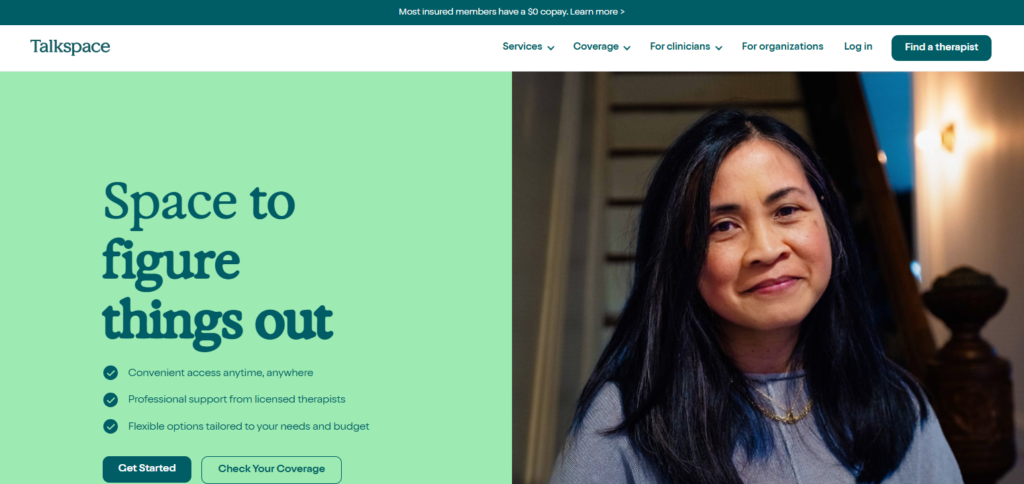
Its unique advantage relies on therapy-on-the-go which allows users to send unlimited messages to their therapists at any time and receive responses whenever they have scheduled appointments.
Therapy-on-the-go makes healthcare immediate and consistent. Talkspace is further flexible because it offers specialized therapy to individuals, couples, and teens.
Pros & Cons Talkspace
Pros:
Cons:
5.Moodfit
Moodfit is one of the recommended applications for mental healthcare as it tracks wellness as a fitness app would.
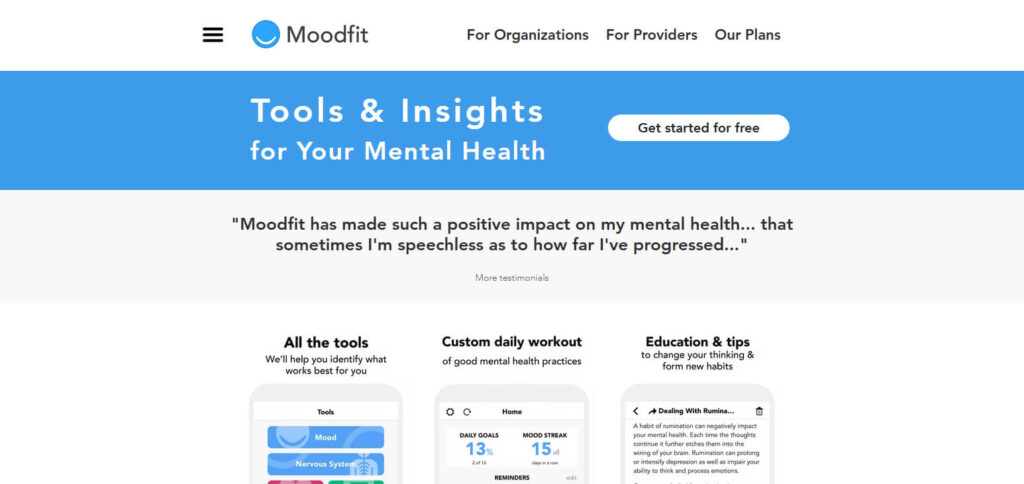
Moodfit enables users to monitor mood, sleep, exercise and even gratitude with its customizable toolset.
By analyzing the data, Moodfit assists users in identifying patterns and triggers which empowers them to make changes. This personalized approach builds self awareness and supports long term mental health growth goals.
Pros & Cons Moodfit
Pros:
Cons:
6.Sanvello
Sanvello stands out as one of the finest apps for mental health. This is due to its effective self-care tools combined with clinically proven techniques all on one platform.
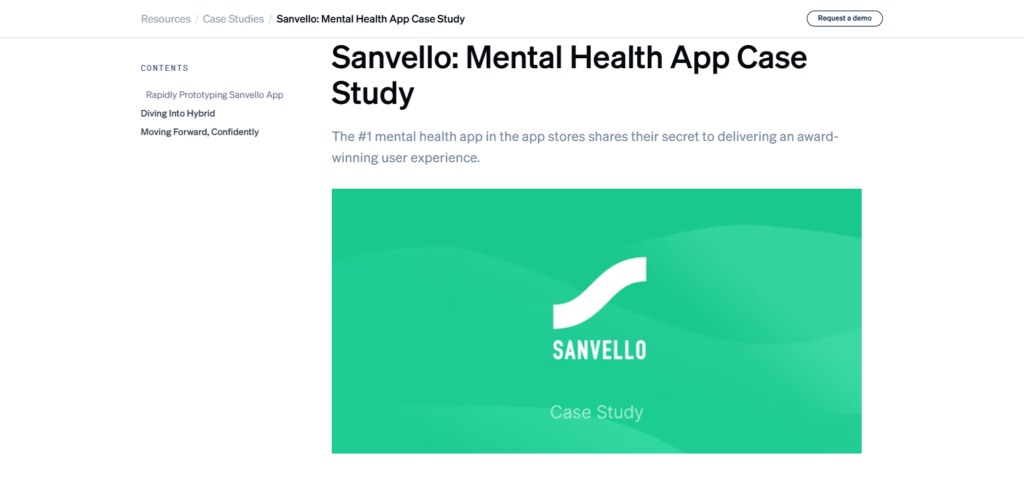
Unlike any other app, Sanvello integrates the CBT (Cognitive Behavioral Therapy) techniques into mood tracking, guided journeys, and even in coping tools.
Sanvello helps users to spend time with other people who are going through similar problems by including the community support feature. The combination of therapy and social connection makes Sanvello an effective app for long-term management of stress, anxiety and depression.
Pros & Cons Sanvello
Pros:
Cons:
7.Shine
Shine is solely unique as one of the best mental wellness apps since it focuses on inclusivity as well as culturally sensitive support.
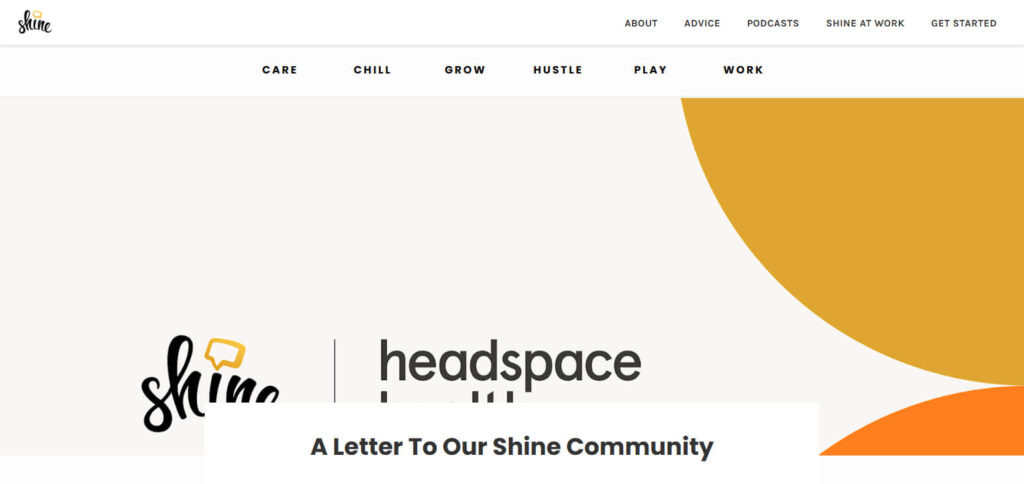
Its distintive strength lies in providing ‘self-care’ content that includes daily affirmations and meditation specifically authored for people of color.
This app integrates an identity based empowerment approach to self-care by blending mindfulness aimed at underrepresented groups. Through incorporating diverse voices and perspectives, the app builds a welcoming environment where users are motivated to prioritize their mental health.
Pros & Cons Shine
Pros:
Cons:
8.Happify
Happify turns mental health care into an interactive activity, making it one of the best apps for emotional health. Its core mission centers on evidence-based games that improve mood and resilience using positive psychology.
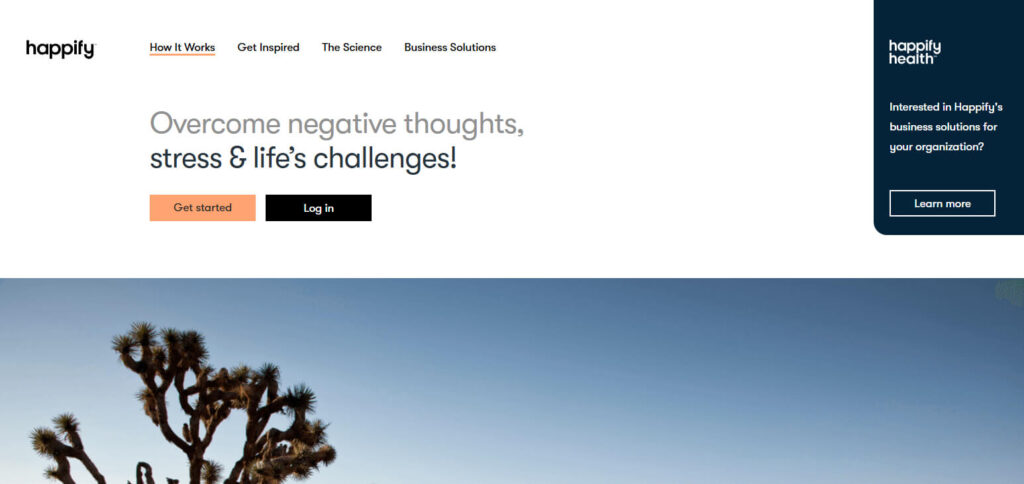
Each user gets a science-researched track that targets their specific stressors, confidence issues, and happiness deficits.
Using mental health techniques disguised as entertaining gameplay, the application allows the user to feel as if they are on a journey toward building emotional agility, which captures the user’s attention and promotes sustained progress.
Pros & Cons Happify
Pros:
Cons:
9.MoodMission
MoodMission is regarded as one of the more effective applications for managing anxiety and low moods on account of its solution-focused strategy.
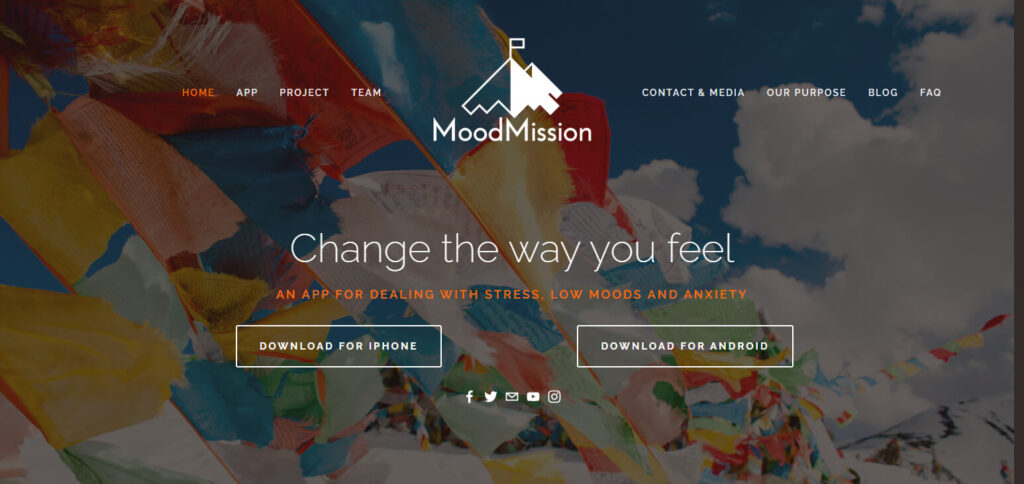
“Mood missions”, as the app refers to them, are a unique feature of the app which self-assign users to do practical tasks based on their current feelings.
These missions, which can be completed immediately, range from physical activities, such as taking a walk, to mindfulness exercises, like meditation. This fosters better coping skills and nurtures the user’s ability to independently confront their mental health challenges.
Pros & Cons MoodMission
Pros:
Cons:
10.iBreathe
IBreathe offers some of the best iPhone applications that focus on mental health since it uses focused breathing exercises to relieve stress.

The greatest strength of this app rests in its “no-frills” approach – no sign-ups, no distractions and no clutter. Users are able to start moderated breathing sessions aimed at reducing stress, improving focus and general calm within minutes.
iBreathe is ideal for mental resets due to its uncluttered interface and customizable settings, and can thus be used by anyone looking to effortlessly manage stress throughout the day.
Pros & Cons iBreathe
Pros:
Cons:
Conclusion
To summarize, the most effective apps for mental health support offer unique functionalities that support a person’s emotional wellness in different ways.
BetterHelp and Talkspace offer therapy sessions, while Headspace and Calm provide guided meditations to help users find their calm. Moodfit and MoodMission offer self-directed growth tools.
Such applications have made caring for one’s mental health easier than it has ever been before. Catering to diverse needs and lifestyles further empowers people to take charge of their mental wellness whenever they desire, wherever they may be.


